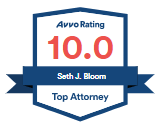Bills in Legislature to Affect Prison Time and Parole
The Louisiana House of Representatives’ Criminal Justice Committee approved a group of bills that will help make it easier for nonviolent criminals to get out of jail earlier. The proposal of bills will now proceed to the full House, which has voted down similar proposals in the past.
House Bills 35, 64, 190, 194, 195, 918 and 947 can be found at www.state.legis.la.us.
House Bill 35, proposed by Patricia Smith (D- Baton Rouge), calls for the parole eligibility of inmates over 60 years of age who have served over 10 years in prison. They would only be considered, however, if they did not commit a crime of violence or a sexual offense. Furthermore, they would have to meet the following conditions. First, they could not have committed a disciplinary offense in the last twelve months. Second, they must have completed a mandatory minimum of one hundred hours of pre-release programming. Third, the inmate must finish a substance abuse program if applicable. Fourth, the prisoner must complete his GED or be deemed incapable of doing so. Finally, he must carry a low-risk level designation.
House Bill 64, proposed by Smith also, calls for the removal of the authority of the parole board entirely. This would mean that all terms set down by judges would be served in their entirety. Some states such as Florida practice this.
House Bill 190, again proposed by Smith, mandates that parole board members meet certain qualifications to serve. These include a bachelor’s in criminal justice or a behavioral science and/or 5 or more years of experience and training in a similar field of work.
House Bill 194, proposed by Smith, offers a change in the accumulation of “good time” a prisoner can gain while in prison. What she proposes is that a nonviolent criminal receive a 30-day credit of “good time” for every 30 days that an inmate either performs his work or self-improvement activities, or both. Violent criminals would accumulate “good time” credit at a rate of 10 days of “good time” per 30 days of work or self-improvement.
House Bill 195, proposed by Fred H. Mills Jr., calls for a shift in the majority needed to receive approval from the parole board. Rather than complete unanimity, a prospective parolee could receive parole if he met all of the conditions previously listed in House Bill 35 and received a majority of the votes on the parole board.
House Bill 918, proposed by Smith, offers that non-violent criminals be given reduced sentences if they chose to attend rehabilitation programs
Finally, House Bill 947, proposed by Cederic Richmond, provides the foundation for the Board of Pardons and its relation to the Governor’s mansion.






